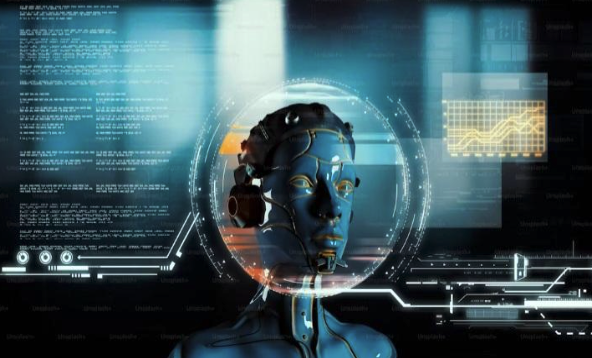

Types of Entertainment Technology
“We are changing the world with technology“The future is amazing” by Bill Gates is one of the famous technology quotes that is fast becoming a reality. The ever-evolving technology trends in the entertainment industry continue to transform the user experience. Entertainment technologies come in many varieties such as video games, VR, AR, streaming services, social platforms, and more. Technology in these aspects has reinvented the way users interact, connect, and consume entertainment.
Guest post topic expert Evelyn Balyton has explored some of the major technology trends in the entertainment industry that she believes you should consider. Read this guide to learn more.
5 major trends in media and entertainment technology in 2024
The entertainment industry has seen some big tech trends in the past, but here are the five biggest trends for 2024.
1. VR in Entertainment
VR technology is constantly changing the entertainment industry for the better. 53% of consumers admit they are more likely to buy from a brand that sponsors a VR experience. Users can experience real-time immersive experiences that many thought remained the realm of science fiction. When perfectly embraced, VR offers multiple ways to attract more guests to your venue: immersive experiences, interactive games, educational content, virtual escape rooms, social interactions, and more.
Matt Mullenweg said this about technology in social interactions:Technology works best when it connects people.“VR is one of the technologies that connects people. It supports multiplayer mode, allowing multiple users to socially interact, compete, and do things together in the VR space. This greatly enhances the social value of entertainment.”
2. AR Experience
AR is one of the top tech trends to consider, as it contributes greatly to digitally enhancing the real world. 48% of shoppers have already used or plan to use AR to evaluate new products and services. Companies and users can interact to create highly engaging connection moments. For example, users can enjoy interactive stories in mini golf, thanks to AR that can animate stationary objects.

 Integrating AR into play centers helps kids become more immersed in a richer environment and allows them to experience physical playthings and gadgets come to life with digital overlays. Incorporating AI can expand the entertainment menu in many ways.
Integrating AR into play centers helps kids become more immersed in a richer environment and allows them to experience physical playthings and gadgets come to life with digital overlays. Incorporating AI can expand the entertainment menu in many ways.
Examples include educational tours, gamified experiences, personalized interactions, social media integration, etc. AR social media integration can increase your online visibility and engagement, making your content more valuable. Encourage your visitors to use AR filters and effects for a better experience.
3. Web 3
“The web I envisioned hasn't happened yet. The future is much bigger than the past.”Tim Berners-Lee.
As Web3 continues to grow, there are still several possibilities to be explored, so add it to your platform to provide the best experience for your users. Web3 knows no boundaries and will continue to grow and provide strategic value and solutions to consumers.
Web3 technology platforms help you add value by transforming the way you create, distribute, and monetize your content. Recently, there has been some blurring in this space regarding who is an active user and who is a consumer. However, what is most important is to ensure accuracy in leveraging the opportunities that Web3 offers as it continues to grow and evolve.
4. Cloud iGaming
Technology is a key aspect of the iGaming sector. It continues to reduce platform costs and remove barriers. The introduction of 5G and cutting edge streaming technology allows users to get even more value at betting and casino sites. These innovations help capture high-end graphic igaming action on smartphones and other devices.
Igaming creators and website owners who generate more revenue are common beneficiaries. Crowd igaming is most commonly seen in eSports, a popular gaming derivative genre.
5. Data, AI and automation
Data, AI, and automation are likely the technologies of the future and are already streamlining workflows in the entertainment industry. Some of the applications of these technological innovations in the entertainment industry include:
- Trend analysis to optimize content
- Scheduling Media Streams
- Measure audience engagement and abandonment
- Auto-annotation for audio services
- Targeted Advertising

 The impact of technology on the entertainment industry
The impact of technology on the entertainment industry
Technology is having a major impact on the entertainment industry by completely changing the way media is produced and consumed. Here are some of the ways technology is reshaping the entertainment industry:
VR and AR: Virtual reality (VR) and augmented reality (AR) technologies are one of the most important in the entertainment industry. Users enjoy immersive experiences and build social and interactive communities with a variety of content. These technological innovations have opened up several new possibilities for more effective and immersive activities, including gaming, live events, and storytelling.
Streaming Services: Streaming services such as Netflix, Disney+, etc. have grown in popularity over the past few years. These streaming services have revolutionized the way users consume entertainment, allowing users to seamlessly watch TV shows and movies on demand, anytime, anywhere. Streaming services are increasingly replacing traditional content distribution.
Social Media and Influencer Marketing: Popular social platforms like X, TikTok, and YouTube are home to influencers of Gen Z. These social platforms continue to be key players in the entertainment industry, with most brand owners promoting their businesses to reach new audiences.
Artificial Intelligence and Data Analytics: These technologies are helping entertainment companies better understand their audiences' content. Hence, AI and data analytics are helping them provide more personalized recommendations. They are also revolutionizing market strategies and providing deeper insights into audience needs.
Digital Effects and CGI: Digital effects and CGI have improved television and film productions. The technology is effective at achieving stunning visuals and realistic worlds that sometimes seem unattainable.
How technology is changing the entertainment industry

 It is no exaggeration to say that the entertainment industry has a bright future. Recently, technological innovations have transformed the entertainment landscape, providing more possibilities for users to enjoy movies, games, and more. Here is how entertainment will change:
It is no exaggeration to say that the entertainment industry has a bright future. Recently, technological innovations have transformed the entertainment landscape, providing more possibilities for users to enjoy movies, games, and more. Here is how entertainment will change:
Streaming platforms like Netflix give anyone easy access to thousands of movies, music, and more by simply connecting their device to the internet. The major contribution of VR and AR is also an essential factor in enhancing the entertainment experience. Users can use their VR gadgets to travel into the digital world from their comfort zone and enjoy games, music, live events, and more. AR transforms digital content into reality. These technologies will further enhance education, gaming, marketing, and more.
Artificial intelligence is another technology that will transform user experiences. It will continue to power hyper-realistic video game environments and character development, bridging the gap between reality and the virtual world.
What's next?
The entertainment industry still has the potential to surpass current innovations. With constant innovative ideas and research, there is a high probability of increased digital interconnectivity. This will allow more media and entertainment technologies to deliver more robust experiences.
The emergence of AI is transforming the media scene, especially in the creative process, and it is expected that AI will be increasingly used. This will contribute to enhancing content development and innovation. In the future, we may see robots take the place of hosts, such as drones managing fireworks, or even coordinating the role of an orchestra.

